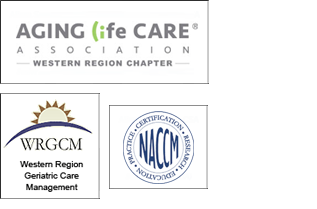Dennis McCullough, Pioneer of ‘Slow Medicine’ in End-of-Life Care, Dies at 72
By Sam Roberts
Published: June 8, 2016

Dr. Dennis McCullough, a pioneer of the “slow medicine” movement, which advocates palliative care over invasive regimens for older patients suffering from the inevitable and irreversible decline of aging, died on Friday in Bar Harbor, Me. He was 72.
The cause was a heart attack, his wife, the poet Pamela Harrison, said.
Dr. McCullough, who lived in Norwich, Vt., had gone to Maine to address community nurses in a conference about slow medicine, a protocol that, dying suddenly and relatively young, he never had the opportunity to apply to himself.
Slow medicine, which is akin to palliative and hospice care, has been increasingly available in nursing homes.
Dr. McCullough’s involvement in the movement was inspired by a medical ordeal he endured, and then reinforced six years later by his mother’s lingering debility before her death.
In 2001, a hereditary autoimmune disease sidelined him from his geriatric-medicine practice at a retirement community in Hanover, N.H. He used crutches for nearly three years.
The illness transformed him “from a capable and experienced caregiver to a weak and vulnerable care receiver,” he wrote in “My Mother, Your Mother: Embracing ‘Slow Medicine,’ the Compassionate Approach to Caring for Your Aging Loved Ones,” published in 2008. And it led to an epiphany.
“My suddenly changed situation brought me new emotional insights into disability and dependency,” he wrote.
Dr. McCullough has been widely credited with coining the term “slow medicine,” borrowing the concept from the slow food movement in Italy, which promotes local production methods as an antidote to fast food. He became a crusader for the cause, arguing for a pragmatic form of elder care that combines “cooperation, coordination and conservation of limited resources” in the patient’s best interest rather than inflicting “death by intensive care.”
“The vast machinery of modern medicine, which can be heroically invoked to save a premature baby, when visited upon an equally vulnerable and failing great-grandmother, may not save her life so much as torturously and inhumanely complicate her dying,” he wrote in 2008 in the alumni magazine of the Geisel School of Medicine at Dartmouth College.
In “My Mother, Your Mother,” he wrote: “Slow medicine is not a plan for getting ready to die. It is a plan for understanding, for caring, and for living well in the time that is left.”
Dr. McCullough invoked his mother’s entreaty — “Why is dying so hard to do?” — in recalling her care during the five weeks in a hospice after being transferred there from a nursing home, where she had lived for 18 months.
All medication except minor pain relief was halted. She slept 20 hours a day. But the predictability of care and the regular presence of her caregivers, he wrote, enabled her to regain her dignity and forge closer relationships with her family in the time she had left.
“Our gratitude for the loving care she so selflessly gave to us,” he wrote, “has been enriched and deepened by our memories of the grace and patience with which she taught us how to die a good death.”
Dennis Michael McCullough was born on Jan. 19, 1944, in Hancock, Mich., on the Upper Peninsula, and raised in Dollar Bay. His father, James, left the family when Dennis was about 5. Dr. McCullough recalled being raised by a single mother, the former Bertha Juntenen, on welfare in a poor Scandinavian-American mining town.
His hockey prowess earned him a scholarship to Phillips Academy in Andover, Mass. He attended Harvard, where he was captain of the hockey team, and graduated in 1967. He received his medical degree from Harvard Medical School.
He married Ms. Harrison before graduating from medical school. Besides his wife, he is survived by a daughter, Kate McCullough; two grandsons; and a sister, Maureen Dolan.
Dr. McCullough practiced over the years in Canada, New Hampshire, Wisconsin, the Caribbean and Vermont. From 1994 to 2002 he was the chief clinical officer in the Department of Community and Family Medicine at Dartmouth-Hitchcock Medical Center in Lebanon, N.H., and he was recruited as the first medical director for Kendal at Hanover, a retirement community, where he honed his slow medicine procedure.
So often today, despite intending to do the best work we can, we face a medical care system that seems to work at odds with our parents’ stated desires and wishes — ‘to die at home,’ ‘to let go when the time comes,’ ‘to avoid the suffering I have seen my friends go through,'” Dr. McCullough wrote in “My Mother, Your Mother.”
“It turns out,” he continued, “that spending a lot of money in high-tech medical care institutions in Miami or New York City doesn’t necessarily secure your mother a better outcome than the spare attentions she might get in South Dakota or Maine.”


